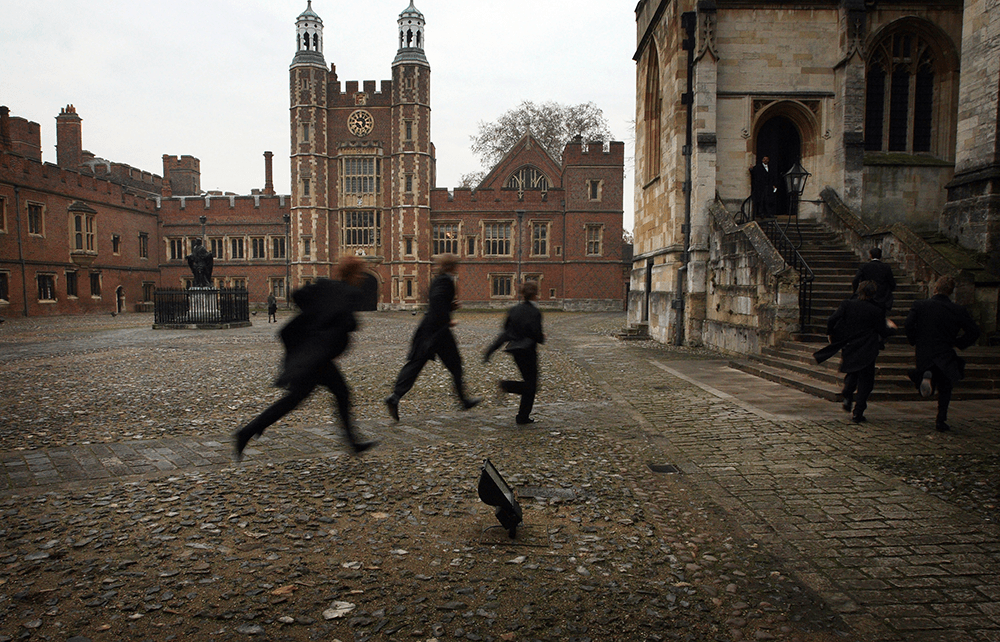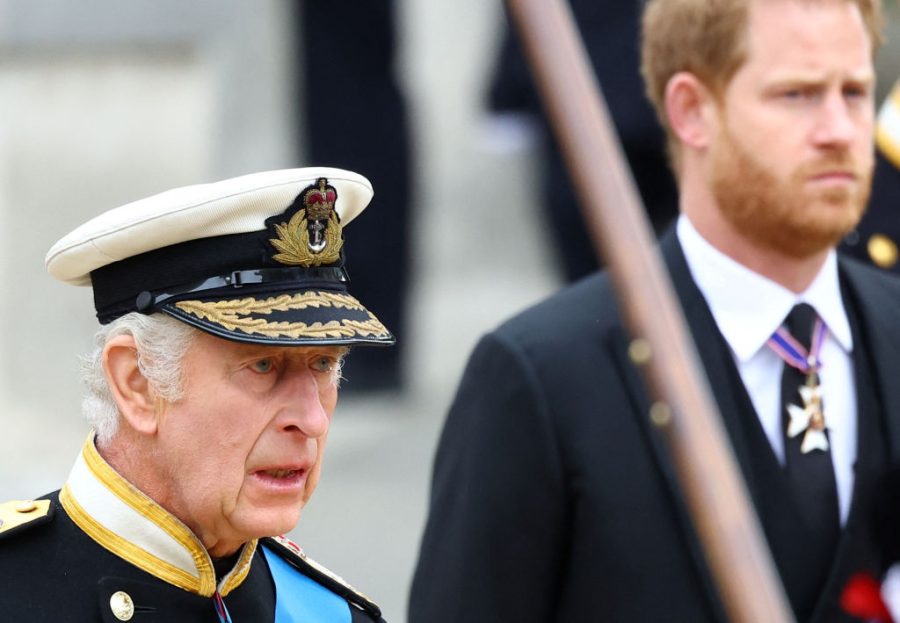How passively we respond to revelations of Labour’s real direction of travel. As millions of pensioners brace for the confiscation of winter fuel payments and other Budget tax raids, shouldn’t they be pinning on their medals, raising their banners and marching down Whitehall – alongside columns of private school parents, furious at the imposition of VAT on fees? Yet so far barely a whimper of protest, as though those affected are racked with guilt at having kept the Tories in power for so long.
In response to the school-fee fait accompli, Eton with its mile-long waiting list will hit parents with a full 20 per cent VAT hike from January, taking the annual cost per pupil to £63,000. The Girls’ Day School Trust, representing 23 schools, will hold the increase to 12 per cent (£20,000 for day pupils) by squeezing pre-VAT fees. As 2,500 other schools fall into line, parents must either pay up or give up their aspirations for their offspring. But as the last VAT-free term begins, there’s still a moral case to be made against this Corbynist measure and plenty to play for before the legislation passes. So here’s my question sheet for your Labour MP.
If parents are admired for spending taxed income on piano lessons or maths tuition for their children, how can it be acceptable to penalise them for paying fees? Isn’t there a principle that essential goods – food, medicine, books, children’s clothing and hitherto education – are not subjected to consumption taxes such as VAT? Indeed, wasn’t the only known example of a tax on school fees, in Greece under the hard-left Syriza regime in 2015, swiftly scrapped as a disaster?
Then again, how fair is it that only 8,000 pupils with ‘education, health and care plans’ will be exempt from VAT while 100,000 others with special needs, and indeed whole specialist schools providing for them, will not? Shouldn’t someone take that straight to the European Court of Human Rights? And why argue (as the Adam Smith Institute did last week) over Labour’s thin-air fiscal arithmetic, which says £1.7 billion raised will fund 6,500 new teachers? Since it’s going to happen anyway, why not insist that the Treasury and the Office for Budget Responsibility make the experiment totally transparent? Count the tax collected, then deduct a cost per pupil for transfers from private to state and an estimate of tax revenues lost from private school closures. Declare the real net sum raised over the next four years, track how many new teachers are funded by it, and publish the audited result ahead of the next general election. That way we’ll know whether the VAT grab was a worthwhile transfer from the advantaged to the less advantaged – or a worthless exercise in class warfare.
Art shakedown
What to make of news that auction sales revenues at both Sotheby’s and Christie’s were down by 22 per cent in the first half of this year? At Sotheby’s flagship New York contemporary sales in May, ‘murmurs abounded’ (according to ArtNews) as Francis Bacon’s ‘Portrait of George Dyer’ was knocked down for $27.7 million, just above half its $50 million high estimate, while one of Richard Diebenkorn’s Ocean Park abstract series, last sold in 2018 for $23.8 million, failed to find a buyer at all and many other lots disappointed.
An explanation for this year’s lacklustre art market offered by the Financial Times is ‘weaker luxury spending in China’. Closer to home in Manhattan and Mayfair, high-end collectors may also be increasingly nervous of the trajectory of their tech stock investments, having watched shares in the AI chipmaker Nvidia take a dive despite better-than-expected quarterly earnings.
But sluggish auctions are, in a sense, more helpful economic indicators than record highs. Christie’s sale of one of Van Gogh’s Sunflowers series to a Japanese bidder in 1987 for a world-record £24.75 million was seen in hindsight as a signal that boom-time trophy-chasing had gone mad: sure enough, Japanese stock-market and property values plunged afterwards and stayed low for decades. A growing feeling today that prices in the most sought-after asset categories are too high for their own good – Nvidia shares, for example, are still well over 100 per cent up for the year to date – is a healthier kind of shakedown.
Telegram from hell
Telegram, in my limited direct experience, is a social media platform for troublemakers. Its founder, 39-year-old Pavel Durov, is currently on bail in France but unable to leave the country, having been arrested on charges (which could carry a ten-year prison sentence) of allowing criminal activity on Telegram, said to be related to child sex abuse and drug trafficking, and refusing to share information with investigators.
Durov himself might have been invented by Hollywood: a nomadic Russian-born billionaire fitness fanatic who spouts libertarian rhetoric, runs his own cryptocurrency and claims to have fathered more than 100 children by sperm donation, he makes Elon Musk look relatively normal.
What’s most surprising in business terms is that, despite past trouble with the US Securities and Exchange Commission over crypto issuance, Telegram has been able to raise $1.3 billion in public bond issues, reportedly attracting Abu Dhabi state funds, and Durov had been planning to launch an IPO with a $30 billion valuation.
The bonds fell sharply on his arrest, the IPO now looks highly unlikely – and if the French authorities keep Durov distracted for quite some time, I’d say they’ll be doing the world and the financial markets a favour.
You’ve been Starmered
Last week’s item on ‘the miserabilism of Starmerland’ prompted a new party game to end my French holiday: define the verb ‘to Starmer’. Our best effort was ‘to manipulate by false pessimism and exaggerated blame, akin to gaslighting’. I’m sure you can do better: martin@spectator.co.uk.








Comments